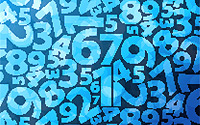Data Accuracy Vital To Improve Online Advertising
- by Laurie Sullivan @lauriesullivan, April 3, 2013
 If the online data isn't good,
then ads fail to connect brands with consumers. While it has been an ongoing push in the online ad industry, some companies, like eXelate, are beginning to take a more aggressive approach -- despite
industry experts' belief that most data is worthless.
If the online data isn't good,
then ads fail to connect brands with consumers. While it has been an ongoing push in the online ad industry, some companies, like eXelate, are beginning to take a more aggressive approach -- despite
industry experts' belief that most data is worthless.
Accurate data can minimize the amount of ad dollars lost to miss targeting. It can generate up to a 1.8 times the lift in on-target campaign performance at eXelate, due to a recent data refinement process developed by the company, said Mark Zagorski, eXelate CEO. He cites research from the Nielsen Online Campaign Ratings system that measured campaigns across several demographic segments.
A change in the availability of customer data provides advertisers with a major opportunity to understand behavioral patterns, but "accuracy in data needs to become the next step, because we now have efficiency in media delivery through real-time bidding," Zagorski said. "We're moving toward using real purchasing behavior, integrating offline and online."
advertisement
advertisement
The group Enliken put out a survey to give consumers a sense of how data mining companies view them, and found that 50% of what companies like Google know them is wrong. The company looked at Bluekai, AOL, Yahoo, eXelate and Google.
The battle to maintain data accuracy to improve the quality of campaigns continues to put a heavy burden on companies serving messages. Some 53% of respondents from a Black Ink study points to data accuracy as one of the biggest challenges to measuring ROI. Marketers believe that without the measurement tool they can't easily quantify and qualify budgets.
Accurate data collected from patterns in behavior for online searches and keywords can determine intent and buying cycles, but it may also detect mood and frame of mind. Computer scientists at the University of Southern California have built a platform using Microsoft's Kinect sensor to detect depressions with 90% accuracy in a controlled group of 60 people.
The software, SimSensei, developed by Stefan Scherer and colleagues, taps a mix of vision algorithms and psychological model of depression. The on-screen psychologist asks questions and watches how the person physically responds. The software builds a detail model of the person's face, such as smile and horizontal gaze.
"Numbers photo from Shutterstock"


